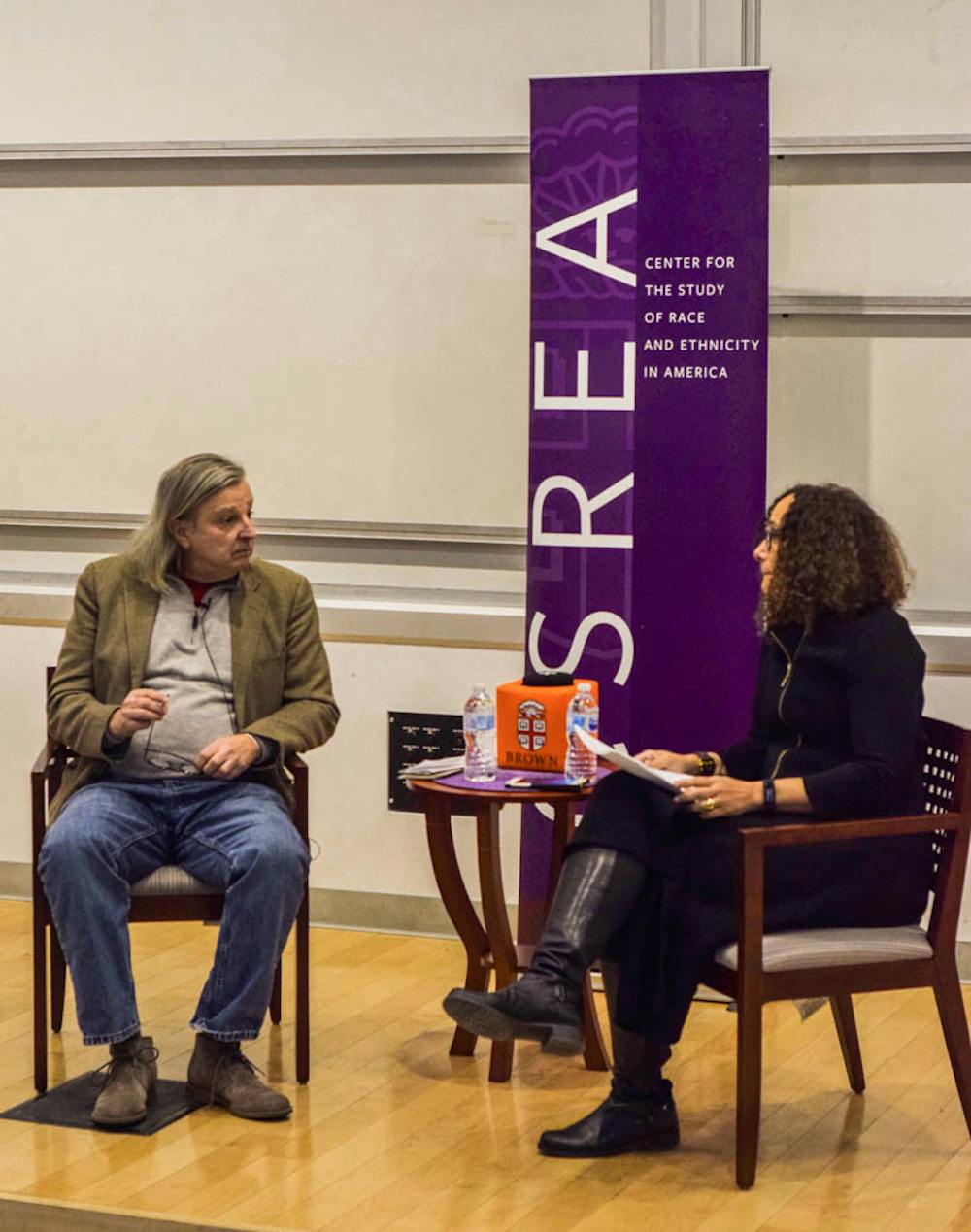In a talk entitled “Whiteness in the Time of Trump,” David Roediger, professor of American studies at the University of Kansas, drew upon his work in what he calls “the critical study of whiteness” to shed light on why white working-class voters supported President Trump in the 2016 election Monday evening.
Roediger joined Tricia Rose, professor of Africana Studies and director of the Center for the Study of Race and Ethnicity in America, in a discussion on how race and politics intersect in the United States today. He referenced both contemporary and past events to explain how white working-class voters propelled Trump to victory.
Citing his own research, Roediger noted that predominantly white counties in Wisconsin overwhelmingly voted for Trump in 2016. Trump’s message of change appealed to white voters living in “desperate places,” he added. But another message of change appealed to those same voters only eight years prior. “In 2008, those … counties overwhelmingly voted for (Barack) Obama,” Roediger said.
Though Obama’s message resonated back then, Roediger claimed Democrats lacked a strong message that appealed to these white working-class voters in the last national election. Meanwhile, Trump attracted these voters with anti-immigrant messages and policy stances, he added.
Democrats’ focus on racial inequality has increasingly alienated white workers, Roediger said. In particular, white working-class individuals who feel underprivileged resent discussions of white privilege. Roediger said he believes this is simply a problem of inaccurate terminology. “If I could shape the language, it would be the language of ‘white advantage’ and not ‘white privilege,’” he explained.
Students and faculty packed the Carmichael Auditorium at 85 Waterman St. for Roediger’s talk. “A lot of you are here because you’re concerned about Trump,” Roediger acknowledged. But he cautioned against mocking the intelligence of Trump and his supporters.
Rose questioned why “many people on benefits were voting against benefits” by supporting Republicans who promised to repeal Obama’s signature health care law. Roediger pushed back on this line of reasoning, asking instead: “Why was the (Affordable Care Act) … not compelling enough to keep those people inside the Democratic party?”
Roediger stated that voters motivated by white nationalism have a long history of voting against their own interests in order to oppose the interests of non-white groups. Just as many Southern white residents opposed reconstruction after the Civil War “both to their own detriment and to the detriment of people of color,” some white workers voted against their own health care benefits in 2016, Roediger said.
Roediger also described an identity crisis among some white workers. “For years, working people in the United States knew themselves as the middle class,” he said. “Now they’re the white working class.” This shift has left white workers feeling increasingly victimized — a sentiment into which Trump tapped.
Trump’s behavior is not new, Roediger said. He likened Trump’s appeal among white voters to the appeal of conservative pundits like Rush Limbaugh and Sean Hannity, whose influences permeated before Trump’s presidency.
Associate Director and Special Advisor of American Studies Caroline Frank, who was in attendance at the event, expressed disappointment in the state of affairs under Trump. “It’s been discouraging” to see open acts of racism since Trump assumed office, “especially on the heels of the first African American president,” Frank told The Herald. “I hope our society remains civil,” she added.
While Roediger emphasized that “it’s important to express an unalterable opposition to Trump,” he also warned against getting “caught up in trying to read the whole situation in the United States from the presidential election alone.”
“If (former Secretary of State Hillary) Clinton had won, we wouldn’t be having this conversation,” Roediger said. “It’s about one election result.”





